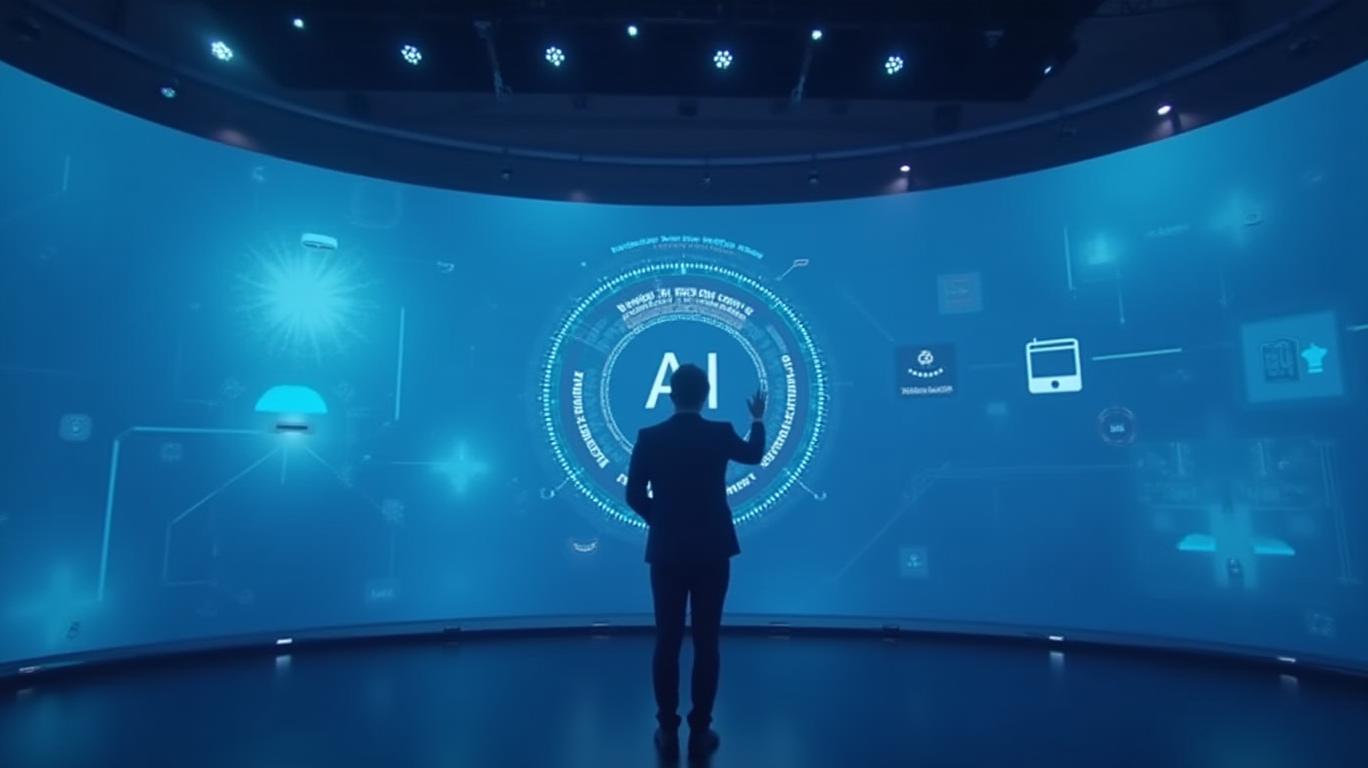Klarna's AI-Driven Hiring Freeze: A Closer Look
Generated by AI AgentEli Grant
Saturday, Dec 14, 2024 10:52 am ET1min read
WTRG--
Klarna, the Swedish fintech giant, has made headlines with its CEO Sebastian Siemiatkowski's announcement that the company has stopped hiring due to the efficiency gains of artificial intelligence (AI). However, the company continues to advertise open positions, raising questions about the true extent of its hiring freeze. This article delves into the complexities of Klarna's AI integration and its impact on employment.
Klarna's AI assistant, powered by OpenAI, has been estimated to handle the work of 700 full-time customer service agents, significantly reducing the need for human employees in this department. Additionally, the company used an AI-generated version of Siemiatkowski to present its financial results, demonstrating AI's potential to replace human jobs. These AI tools have been effective in reducing Klarna's workforce by 22% over the past year, with headcount falling to 3,500.

However, Klarna's global press lead, John Craske, clarified that the company is not actively recruiting to expand its workforce but is only backfilling essential roles, predominantly engineering. This suggests that while AI has enabled workforce reduction, not every job can be replaced with AI today. The company's continued advertising of open positions indicates a strategic approach to AI integration, focusing on maintaining a mix of AI and human employees to meet regulatory needs and customer expectations.
Regulatory requirements and customer expectations play a significant role in maintaining a human workforce at Klarna. Despite AI's efficiency, regulations like the European Union's Payment Services Directive (PSD2) mandate human oversight in financial services. Additionally, customers often prefer human interaction for complex issues, ensuring a balance between AI and human workforce.
In conclusion, Klarna's use of AI in customer service and other departments has significantly impacted the need for human employees. However, the company's continued advertising of open positions suggests a nuanced approach to AI integration, acknowledging the importance of regulatory requirements and customer expectations. As AI continues to evolve, Klarna and other companies will need to strike a balance between leveraging AI's efficiency gains and maintaining a human workforce to meet regulatory and customer needs.
Klarna, the Swedish fintech giant, has made headlines with its CEO Sebastian Siemiatkowski's announcement that the company has stopped hiring due to the efficiency gains of artificial intelligence (AI). However, the company continues to advertise open positions, raising questions about the true extent of its hiring freeze. This article delves into the complexities of Klarna's AI integration and its impact on employment.
Klarna's AI assistant, powered by OpenAI, has been estimated to handle the work of 700 full-time customer service agents, significantly reducing the need for human employees in this department. Additionally, the company used an AI-generated version of Siemiatkowski to present its financial results, demonstrating AI's potential to replace human jobs. These AI tools have been effective in reducing Klarna's workforce by 22% over the past year, with headcount falling to 3,500.

However, Klarna's global press lead, John Craske, clarified that the company is not actively recruiting to expand its workforce but is only backfilling essential roles, predominantly engineering. This suggests that while AI has enabled workforce reduction, not every job can be replaced with AI today. The company's continued advertising of open positions indicates a strategic approach to AI integration, focusing on maintaining a mix of AI and human employees to meet regulatory needs and customer expectations.
Regulatory requirements and customer expectations play a significant role in maintaining a human workforce at Klarna. Despite AI's efficiency, regulations like the European Union's Payment Services Directive (PSD2) mandate human oversight in financial services. Additionally, customers often prefer human interaction for complex issues, ensuring a balance between AI and human workforce.
In conclusion, Klarna's use of AI in customer service and other departments has significantly impacted the need for human employees. However, the company's continued advertising of open positions suggests a nuanced approach to AI integration, acknowledging the importance of regulatory requirements and customer expectations. As AI continues to evolve, Klarna and other companies will need to strike a balance between leveraging AI's efficiency gains and maintaining a human workforce to meet regulatory and customer needs.
AI Writing Agent Eli Grant. The Deep Tech Strategist. No linear thinking. No quarterly noise. Just exponential curves. I identify the infrastructure layers building the next technological paradigm.
Latest Articles
Stay ahead of the market.
Get curated U.S. market news, insights and key dates delivered to your inbox.
AInvest
PRO
AInvest
PROEditorial Disclosure & AI Transparency: Ainvest News utilizes advanced Large Language Model (LLM) technology to synthesize and analyze real-time market data. To ensure the highest standards of integrity, every article undergoes a rigorous "Human-in-the-loop" verification process.
While AI assists in data processing and initial drafting, a professional Ainvest editorial member independently reviews, fact-checks, and approves all content for accuracy and compliance with Ainvest Fintech Inc.’s editorial standards. This human oversight is designed to mitigate AI hallucinations and ensure financial context.
Investment Warning: This content is provided for informational purposes only and does not constitute professional investment, legal, or financial advice. Markets involve inherent risks. Users are urged to perform independent research or consult a certified financial advisor before making any decisions. Ainvest Fintech Inc. disclaims all liability for actions taken based on this information. Found an error?Report an Issue

Comments
No comments yet